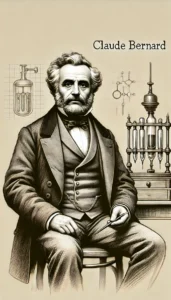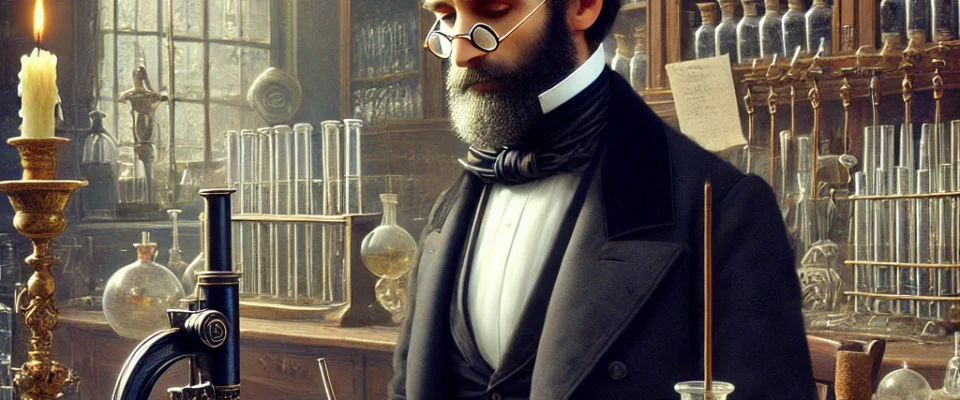Claude Bernard (1813–1878) was a renowned French physiologist, considered one of the founders of modern physiology. He made significant contributions to medical science, particularly in understanding the fundamental physiological mechanisms of the human body.

Life and Career:
– Born: July 12, 1813, in Saint-Julien, France.
– Died: February 10, 1878, in Paris, France.
Notable Contributions:
1. Concept of the internal environment (milieu intérieur): One of Claude Bernard’s most notable contributions was the concept of the internal environment, referring to the stable condition within the body, which is foundational to modern understanding of physiology and medicine.
2. Physiological experiments: Bernard conducted numerous experiments, most notably his research on the liver and its role in maintaining blood sugar levels, as well as his discovery of the role of the pancreas in digestion.

3. Doctrine of controlled experiments: He was also one of the first to advocate for the use of controlled experiments in scientific research, emphasizing the importance of controlling variables to obtain accurate results.

4. Important works: Claude Bernard authored many significant scientific works, including the book “Introduction à l’étude de la médecine expérimentale” (Introduction to the Study of Experimental Medicine) published in 1865, where he emphasized the role of experimentation and observation in medicine.
5. Influence: His work not only had a profound impact on the field of physiology but also influenced the philosophy of science, laying the foundation for experimental scientific research.
Claude Bernard is regarded as one of the greatest scientists of the 19th century, and his legacy continues to have a strong influence on the study of physiology and modern medicine.

